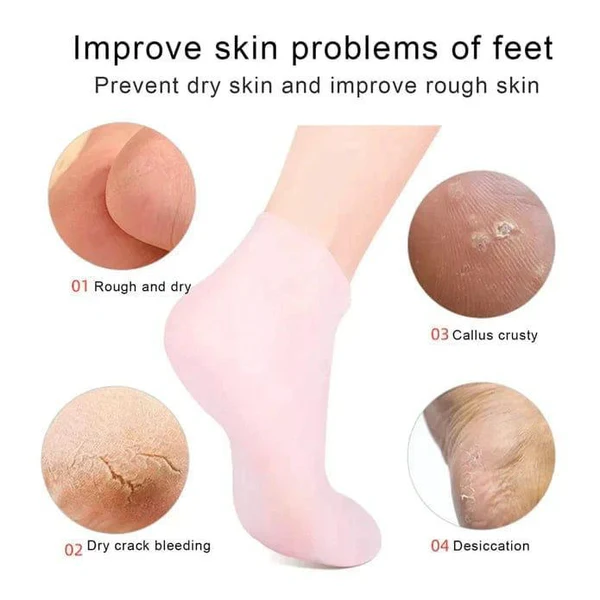When you’ve been diagnosed with sleep apnea, finding the right doctor becomes a crucial step in your journey toward better sleep. Sleep apnea is a potentially serious condition that affects breathing during sleep, leading to interruptions that can harm overall health. Fortunately, sleep apnea doctors are specially trained to manage and treat the disorder effectively. Whether you’re struggling with obstructive sleep apnea (OSA) or another type, selecting the best specialist can make all the difference in your treatment. This guide will help you understand how to choose the right doctor, the types of treatment available, and how Nasal Masks play a role in your therapy.
Understanding Sleep Apnea and the Role of Specialists
Sleep apnea is a condition characterized by pauses in breathing or shallow breaths while sleeping. The most common type, obstructive sleep apnea (OSA), occurs when the muscles at the back of the throat relax excessively, causing an obstruction in the airway. Central sleep apnea, on the other hand, is a result of the brain failing to send the appropriate signals to the muscles that control breathing. Complex sleep apnea syndrome involves a combination of both.
A sleep apnea doctor—usually a pulmonologist, otolaryngologist, or sleep specialist—is the medical professional trained to diagnose and treat this condition. These experts typically assess your symptoms, conduct sleep studies, and help develop personalized treatment plans. Depending on the severity of the condition, you may be advised to use various therapeutic tools, including CPAP machines or Nasal Masks.
How to Choose the Right Sleep Apnea Doctor
Choosing the ideal doctor for your sleep apnea treatment is essential. Not every physician is equipped to handle the complexities of this disorder, so it’s important to seek someone with experience in sleep medicine. Consider the following steps when making your selection:
-
Look for Specialized Expertise: Sleep apnea doctors often specialize in either pulmonology or otolaryngology. A pulmonologist treats the breathing aspect of the condition, while an otolaryngologist specializes in the ear, nose, and throat, which are crucial in cases of airway obstruction. It’s important to look for a doctor who has specific experience in diagnosing and treating sleep apnea.
-
Get a Referral or Read Reviews: The best way to find a trusted sleep apnea specialist is through recommendations from other medical professionals or patient reviews. Ask your general doctor for a referral or read online reviews about the specialists in your area.
-
Consider Doctor Availability: A good sleep apnea doctor should be easy to contact and should make you feel comfortable during your visits. Check their availability, responsiveness, and willingness to answer your questions.
-
Consultation and Diagnosis: The first step in treatment is an accurate diagnosis. Make sure your potential doctor conducts a thorough evaluation. This may include a physical examination, an assessment of your medical history, and a sleep study (polysomnography) to confirm whether sleep apnea is the underlying cause of your symptoms.
-
Treatment Options and Recommendations: Once diagnosed, the doctor should explain your treatment options clearly. These may range from lifestyle changes and weight management to the use of continuous positive airway pressure (CPAP) therapy and the use of Nasal Masks. In some cases, surgery may be necessary if the airway is severely obstructed.
Understanding the Role of Nasal Masks in Treatment
For many individuals with sleep apnea, the most common treatment involves the use of CPAP machines. CPAP (Continuous Positive Airway Pressure) machines are designed to deliver a constant flow of air into the airways to prevent them from collapsing during sleep. One of the essential components of this therapy is the Nasal Mask, a device worn over the nose that ensures a steady flow of air throughout the night.
There are several different types of Nasal Masks available, each offering unique features and benefits. Some are designed for comfort, with soft cushions that fit snugly against the skin, while others are built for durability and high performance. Your sleep apnea doctor will help you choose the right mask based on your comfort level, type of sleep apnea, and other personal factors.
Things to Consider When Using Nasal Masks
-
Fit and Comfort: A well-fitted Nasal Mask is crucial for effective CPAP therapy. It should be snug enough to create a seal but not tight enough to cause discomfort or skin irritation. Your doctor or sleep therapist can guide you in choosing the best option based on your facial structure and sleep preferences.
-
Air Pressure Settings: CPAP machines work by maintaining a consistent airflow to keep your airways open. However, the optimal air pressure can vary from person to person. A sleep apnea doctor will monitor your therapy progress and adjust the settings if necessary to ensure you receive the most effective treatment.
-
Maintenance and Cleaning: Nasal Masks, like all medical devices, require regular cleaning and maintenance to function properly. Your doctor can provide guidelines on how to care for your mask to prolong its lifespan and prevent any buildup of bacteria that could lead to infections.
-
Alternative Mask Types: If you find that a Nasal Mask is uncomfortable or doesn’t work well for you, there are other types of CPAP masks to consider, such as full-face masks or nasal pillow masks. Your sleep apnea doctor will discuss these options with you if needed.
The Importance of Ongoing Care and Follow-Up
Sleep apnea treatment doesn’t stop with a single visit to the doctor. Regular follow-up appointments are essential to ensure that your therapy is working effectively and that you’re not experiencing any side effects. Over time, your needs may change, and your doctor may recommend adjustments to your treatment plan.
A good sleep apnea doctor will take a proactive approach to your care. They should monitor your progress regularly and be responsive to any concerns or issues you may face. This continuous support helps improve the effectiveness of your therapy and enhances your overall well-being.
Conclusion
Selecting the right sleep apnea doctor is vital for the successful management of your condition. By understanding the treatment options available, such as CPAP machines and Nasal Masks, and consulting with a specialist who has the expertise to address your unique needs, you can significantly improve your quality of life. Remember, the key to effective treatment lies not only in choosing the right doctor but also in maintaining open communication and following through with the recommended therapy.














Leave a Reply